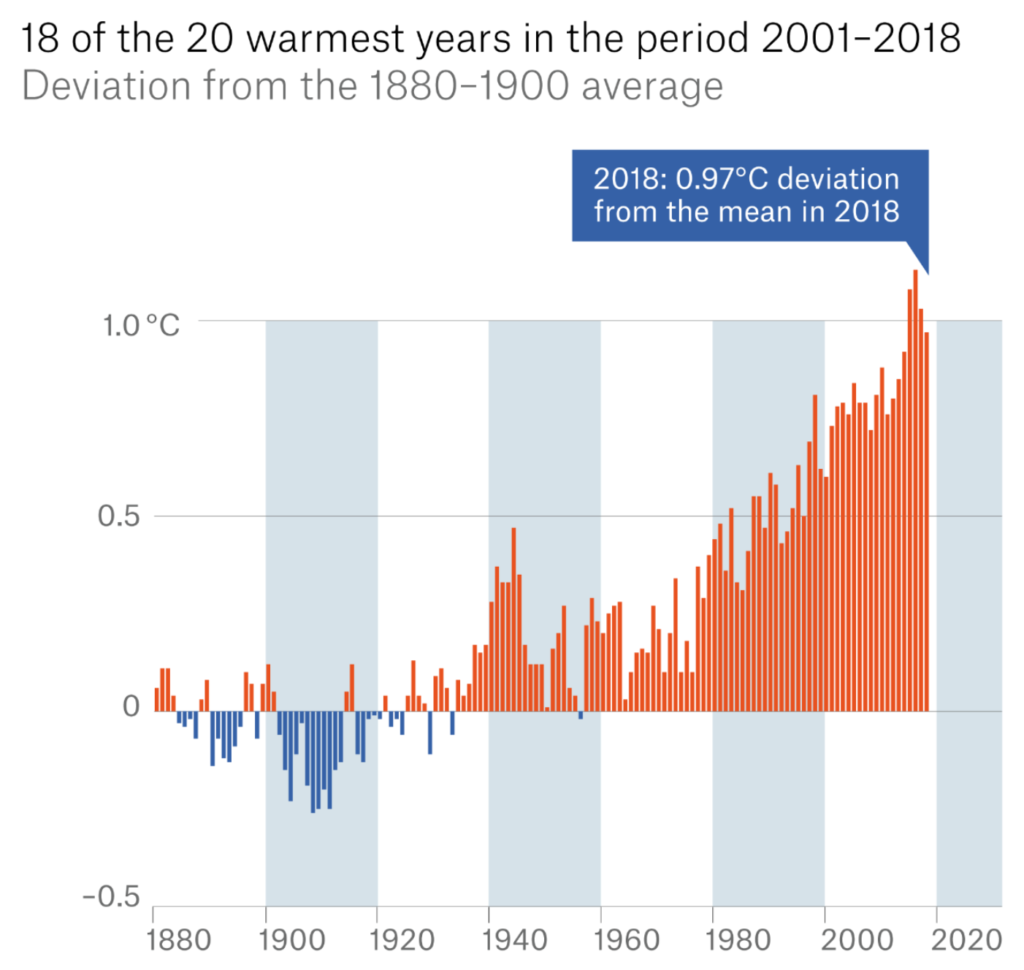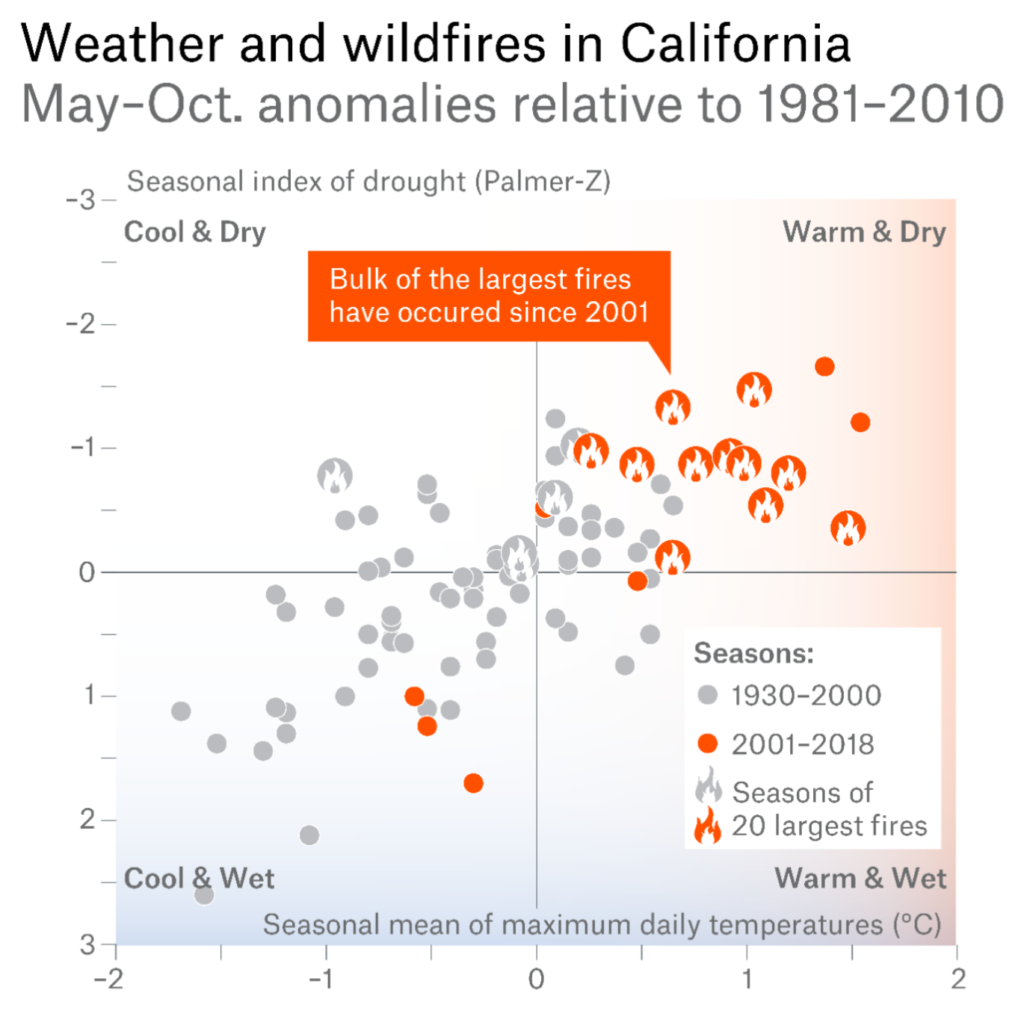Welcome to DU!
The truly grassroots left-of-center political community where regular people, not algorithms, drive the discussions and set the standards.
Join the community:
Create a free account
Support DU (and get rid of ads!):
Become a Star Member
Latest Breaking News
General Discussion
The DU Lounge
All Forums
Issue Forums
Culture Forums
Alliance Forums
Region Forums
Support Forums
Help & Search
Environment & Energy
Related: About this forumMunich RE - 18 Of 20 Hottest Years On Record Took Place From 2001 Through 2018

Global average surface temperature anomaly, 1880-2018, relative to the 1880-1900 average. 18 of the 20 warmest years are in the period 2001-2018. Data: National Centers for Environmental Information / NOAA. Graphic: Munich Re
EDIT
2. Global warming in figures
All 18 years since 2001 rank among the 20 warmest since measurements began.
The warmest was 2016. 2017 was also one of the three warmest years on record. But almost more important is the fact that 2017 was the hottest year ever recorded without the warming effect of the natural climate oscillation, El Niño. 2018 was similar, with global average temperatures 0.97°C above the 1880–1900 average, used as the benchmark for pre-industrial times. And in all of this, scientists see a clear signal of climate change.

Weather and wildfires in California, May-Oct anomalies relative to 1981-2010. The bulk of the largest fires have occurred since 2001. Data: National Centers for Environmental Information / NOAA / California Department of Forestry and Fire Protection. Graphic: Munich Re
3. Climate change and its effects
Many scientists believe that climate change is influencing weather hazards such as heatwaves, droughts, extreme precipitation and storms in individual regions. But the link between them is complex: Natural climate oscillations exert a major – and over shorter periods frequently far greater – influence on weather hazards, and the vulnerability of buildings and infrastructure to natural events as well as the development of preventative structures and regulation also have a major effect on the scale of registered losses. When focusing on one single region and one individual weather hazard, the impact of climatic changes on losses since 1980 (adjusted to take account of rising values) can be identified in some cases. On a global scale, however, such impacts would not show up due to the countervailing influences partially cancelling each other out.
New research methods enable scientists to state whether in a specific region extreme events such as rain above a certain amount or temperatures above a certain threshold have become more – or less – likely compared with a world without climate change. The results of these so-called attribution studies are of enormous help in the early identification of risk drivers and thus also in planning adaptation and loss prevention measures. Such regional studies have thus far been carried out on heat, drought, precipitation and floods, oceanic parameters, cold and storms – although the majority of studies have looked at temperature extremes. For example, the studies have revealed that the probability of severe flooding events in certain regions of Great Britain has increased significantly compared with a world without climate change. Of 131 extreme events in different parts of the world investigated in peer-reviewed studies by one scientific journal, 68% revealed an influence of climate change on altered exceedance probabilities. Many extreme events are therefore already being influenced by climate change.
EDIT
https://desdemonadespair.net/2019/09/munich-re-climate-change-and-its-consequences-18-of-the-20-warmest-years-are-in-the-period-2001-2018.html
InfoView thread info, including edit history
TrashPut this thread in your Trash Can (My DU » Trash Can)
BookmarkAdd this thread to your Bookmarks (My DU » Bookmarks)
0 replies, 560 views
ShareGet links to this post and/or share on social media
AlertAlert this post for a rule violation
PowersThere are no powers you can use on this post
EditCannot edit other people's posts
ReplyReply to this post
EditCannot edit other people's posts
Rec (2)
ReplyReply to this post